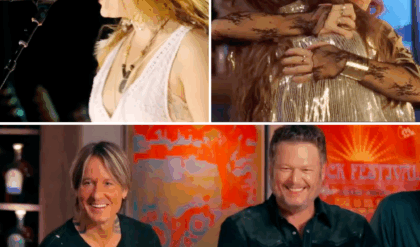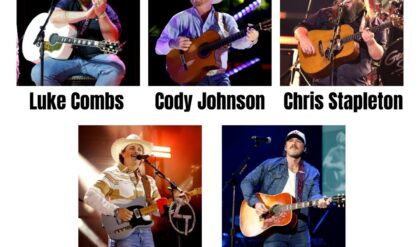In the dim glow of the El Capitan Theatre’s marquee lights on Hollywood Boulevard, where the ghosts of golden-age glamour still linger like half-forgotten punchlines, Jimmy Kimmel stepped back into the spotlight on September 23, 2025—a Tuesday night etched into the annals of late-night lore as both a triumph and a tremor. For six grueling days, the airwaves had fallen silent on Jimmy Kimmel Live!, yanked off ABC in a move that rippled from Burbank boardrooms to the Beltway’s barbed-wire debates. When the cameras rolled at 11:35 p.m. ET, an average of 6.26 million viewers—nearly four times the show’s seasonal norm—tuned in, shattering records for its regular slot despite blackouts in nearly a quarter of U.S. households. Nielsen’s preliminary tallies, splashed across headlines by dawn, crowned it the program’s biggest audience ever, a defiant spike that left even seasoned execs blinking. “We didn’t just break the mold,” Kimmel quipped later in the week during a Variety sit-down, his trademark smirk masking the shadows under his eyes. “We shattered the damn thing—and handed out the shards as souvenirs.”
The numbers were staggering, a Nielsen bonanza that outpaced the 1.77 million average from Q2 2025 and eclipsed the show’s 2024-25 seasonal haul of 1.42 million. But here’s the kicker: Sinclair and Nexstar, the behemoth station groups owning 70 ABC affiliates from Seattle’s rainy spires to Nashville’s neon hum, opted out. Their combined reach—23% of American homes, some 30 million potential eyeballs—went dark, airing news reruns and filler fluff instead. WJLA in D.C. slotted a late edition of The National Desk; Nashville’s WKRN looped local weather warnings like a bad omen. Yet, the faithful flocked to streams: Disney+ logins surged 28% in the hour, YouTube clips of the monologue racked 15.3 million views by Wednesday noon, and Instagram Reels pushed another 6.3 million. “It’s the Streisand effect on steroids,” marveled ABC’s Dana Walden in an internal memo leaked to The Hollywood Reporter. “Jimmy didn’t just return; he resurrected.”
To unpack this phoenix-from-the-ashes saga, rewind to September 15—a Monday marred by national mourning. Charlie Kirk, the 31-year-old firebrand founder of Turning Point USA, had been gunned down five days prior at a Utah Valley University rally, a sniper’s bullet from accused assassin Tyler Robinson ending the conservative provocateur’s life mid-rant against “campus radicalism.” The nation convulsed: vigils in Phoenix drew tear-streaked MAGA faithful; Robinson’s manifesto, unearthed in a Washington County motel, railed against “Zionist puppets” and “MAGA martyrdom.” Enter Kimmel, the 57-year-old everyman comic whose bow-tied charm has anchored ABC since 2003. In that night’s opener, he skewered the tragedy’s politicization: “The MAGA gang is desperately trying to paint this kid as anything but one of their own—some deep-state plant, a Soros stooge—anything to score points off a coffin.” It was vintage Kimmel—sharp, satirical, slicing at hypocrisy like a surgeon’s scalpel. Laughter rippled through the studio; clips went viral, amassing 4 million views overnight.
But satire, in 2025’s tinderbox America, is a spark near dynamite. By Tuesday, the backlash ignited. President Donald Trump, fresh from a UK state visit where he’d touted “truth over tropes,” fired off a Truth Social salvo: “Jimmy Kimmel’s ‘joke’ about Charlie Kirk’s murder? Disgraceful. ABC, do the right thing—cancel this loser before he poisons more minds. Great news if you do!” FCC Chairman Brendan Carr, a Trump appointee with a Rolodex of regulatory razors, amplified the blaze on conservative podcaster Benny Johnson’s YouTube show. “This isn’t comedy; it’s a concerted lie to the American people,” Carr thundered, his voice gravel over glass. “ABC has a choice: the easy way—suspend Kimmel—or the hard way. Fines, license reviews, the full FCC toolkit.” He paused for menace: “We can make stations drop this dreck, or worse.” Jawboning? First Amendment foul? Legal eagles cried foul; the ACLU dispatched a preemptive cease-and-desist.
Disney/ABC, caught in the crosshairs, blinked first. On September 17—mere hours after Kimmel’s writers prepped a follow-up monologue dissecting the fallout—the network halted production indefinitely. A terse statement from Burbank cited “an emotional moment for our country” and “ill-timed comments,” but insiders whispered of war-room panic: Iger on speakerphone with Walden, affiliates howling about ad boycotts, Wall Street jittery as Disney shares dipped 4% ($5 billion evaporated in a day). Kimmel, silent as the suspension sank in, retreated to his Hollywood Hills enclave with wife Molly McNearney and their brood—Billy, 8; Jane, 5; and the ghost of son William, whose 2017 heart surgery had forged Kimmel’s fiercest advocacy. No tweets, no TikToks—just a single, shadowy Instagram post: a faded photo of himself with newborn Billy in NICU, captioned “Words matter. Hearts heal.”
The void? A vacuum that sucked in a storm. Hollywood mobilized like a well-oiled outrage machine. By September 18, an ACLU open letter—signed by 430 heavyweights including Robert De Niro, Meryl Streep, Lin-Manuel Miranda, Ben Affleck, and Selena Gomez—blasted the suspension as “a dark moment for free speech.” “Whether it’s Charlie Kirk or Jimmy Kimmel, MAGA martyrs or midnight monologists, the First Amendment shields us all,” it thundered, echoing Barack Obama’s X thread: “Freedom isn’t selective; it’s sacred.” Unions piled on: the Writers Guild, SAG-AFTRA, and DGA condemned Disney as “caving to authoritarian bullies,” with over 400,000 members threatening solidarity strikes. Boycotts bit: #CancelDisney trended with 2.1 million posts, Disney+ cancellations spiked 15% (per Parrot Analytics), and Starbucks, a top Kimmel advertiser, paused spots amid the melee.
Even the right fractured. Howard Stern, the shock-jock sage, defended Kimmel on SiriusXM: “I fought censorship battles in the ’80s—fines, firings, the FCC’s holy war. This? It’s history repeating, and it’s bullshit.” Ben Stiller, who’d sparred with Kirk on set visits, tweeted: “Jimmy’s satire stings because it’s true. Silencing him? That’s the real punchline.” Protests swelled: 500 demonstrators ringed Disney HQ on September 18, chanting “Free Kimmel!” under banners decrying “Trump’s Mute Button.” In D.C., Rep. Adam Schiff (D-CA) grilled Carr at a House hearing: “Is the FCC a regulator or a retaliator?” Across the aisle, libertarian Rand Paul grumbled on Fox: “Government strong-arming comedy? Smells like the swamp we drained.”
Nexstar and Sinclair, sensing blood in the ratings waters, doubled down. On September 19, Nexstar’s Perry Sook announced preemptions on 38 affiliates: “We object to Kimmel’s insensitivity—our viewers deserve better.” Sinclair followed, yanking from 32 stations, including WJLA’s prime-time slot. “News over nonsense,” their statement read, but whispers hinted at ad windfalls—local spots fetched 20% premiums amid the buzz. Disney stock wobbled, shedding another 2% as analysts at JPMorgan warned of “regulatory roulette.” Kimmel’s camp? Mum. McNearney, his head writer and co-conspirator, leaked to Vanity Fair: “Jimmy’s processing. This isn’t just a job; it’s his voice.”
By September 22, the tide turned. Backlash bled into balance sheets: Disney+ churn hit 18%, affiliate defections loomed, and a class-action suit from the Creative Rights Coalition alleged “chilling effects on expression.” Iger, the Teflon titan, convened a crisis conclave—Kimmel via Zoom from a Malibu deck, Walden pacing Burbank’s exec floor. “Thoughtful conversations,” the post-meeting statement read, but sources say it was triage: “Reinstate or revolt.” At 3:17 p.m. PT, Disney blinked again: “Jimmy Kimmel Live! resumes Tuesday. We’ve listened, learned, and recommitted to bold voices.” Trump, mid-golf swing at Bedminster, erupted on Truth Social: “ABC caved! Fake News gives Kimmel his gig back? The White House was assured cancellation. Illegal DNC arm—sue them all! Last time, they paid me $16M. Round two?”
Tuesday’s taping? Electric. The El Capitan crowd—handpicked superfans in “Free Speech” tees—erupted as Kimmel bounded onstage, bow tie askew, to a standing O that shook the rafters. Guillermo Rodriguez, his portly sidekick, bear-hugged him mid-stride: “Jefe, we missed your mean jokes!” Kimmel, voice cracking like fine china, launched into an 18-minute opus—part confessional, part crusade. “It was never my intention to make light of Charlie Kirk’s murder,” he said, eyes glistening under the spots. “Nothing funny about a kid’s life snuffed out. Nor was I blaming a group for one madman’s act—that’s the opposite of what I meant.” He pivoted to the peril: “But when our leader cheers job losses over jokes? When regulators threaten licenses for laughs? That’s anti-American. Dangerous. We have to speak out—or shut up forever.”
The monologue morphed into multimedia mayhem: clips of Trump’s Truth rants (“No talent! No ratings!”), Carr’s podcast threats (“Easy way or hard”), spliced with De Niro’s satirical FCC skit (via satellite, barking fines in a mobster drawl). Kimmel name-checked signatories—”Meryl, Lin-Manuel, Selena—thank you for the backup”—and skewered preemptors: “Sinclair and Nexstar? Enjoy your news loops. Viewers, stream us—stick it to the suits.” Laughter crested on zingers: “Trump wanted me canceled? Buddy, I’ve survived worse—my Oscars gig, for one.” By fade-out, tears mingled with titters; the band swung into “Sweet Caroline,” sans the “bah-bah-bahs.”
The fallout? A fractured feast. Ratings bonanza aside, Sinclair/Nexstar dug in—Nexstar’s Sook told CNBC: “Our markets, our call. Sensitivity sells.” (Their preempt slots pulled 2.1 million locals, per Nielsen.) Disney clawed back: shares rebounded 3%, but Iger faced shareholder heat at the October board meet. Kimmel’s contract—expiring May 2026—now dangles like a punchline’s pause; whispers of Peacock poaching swirl. Colbert, whose Late Show limps to 2026’s end, monologued solidarity: “Jimmy’s back—late-night’s not dead yet.” Fallon and Meyers? Muted mirth, NBC execs eyeing the exits.
Yet amid the metrics, a deeper chord resonates. Kimmel’s return isn’t just a ratings rocket; it’s a referendum on ridicule in the Trump 2.0 era. “This show isn’t important,” he told the crowd, voice steadying. “What matters is a country where we can have it—jabs, jibes, and all.” As credits rolled to 6.26 million cheers, one truth lingered: In America’s divided den, comedy’s the canary—chirp too loud, and the cage swings shut. Kimmel, bow tie triumphant, just proved it can sing louder still.





